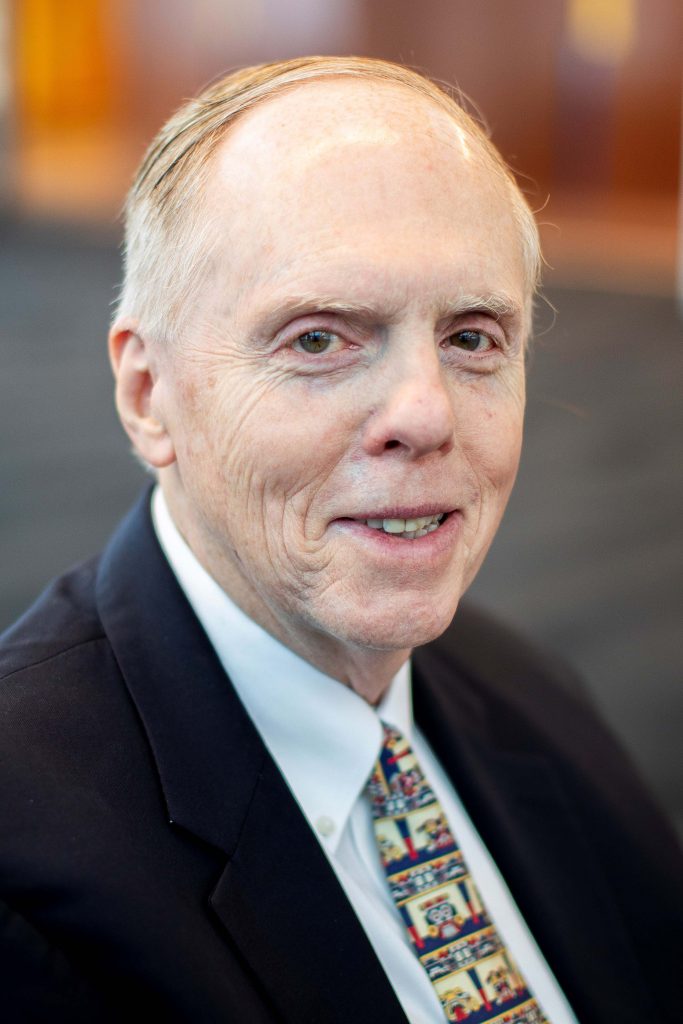Authors, Bruce J. Dierenfield and David Gerber of “Disability Rights and Religious Liberty in Education: The Story Behind Zobrest v. Catalina Foothills School District” answer questions about their influences and what readers should look for while reading their book.
Q: Why did you decide to write this book?
David Gerber wanted to find a subject that would anchor disability in mainstream social and political history, rather than in cultural theory and identity, and to explore disability simultaneously both in intimate personal relations, such as within a family, and in the ordering of social relations and opportunities within public institutions, such as schools. Bruce Dierenfield had more personal motives. He identified strongly with Jim Zobrest, our book’s protagonist, who like Bruce has always been significantly affected by deafness, and had always loved basketball. The world of Catholic education is also familiar to Bruce. Bruce has spent his professional career at a Catholic Jesuit college. Like Jim, Bruce’s wife and daughter attended Catholic schools.
Q: Who were your biggest influences?

David Gerber has been influenced by two authors who write on disability. They are: Andrew Solomon, whose book Far from the Tree is a series of narratives about different sorts of disabling conditions experienced by children and adolescents in the context of their families; and Gina Oliva, a deaf author whose book, Alone in the Mainstream, is an autobiographically based study of the negotiations a hearing impaired women undertook over many years, from childhood well into adulthood, to find a balance between life in the hearing and the Deaf worlds. Bruce Dierenfield has been a long-time researcher on the field of constitutional law of religious liberty, especially in the arena of public education. He names these legal scholars among the influences of his views on the Religion Clauses of the First Amendment: Douglas Laycock, Ronald Flowers, Peter Irons, and Leonard Levy, and the legal anthropologist David Engel for his work of why ordinary people do or do not file lawsuits when they have judicable grievances.
Q: What is the most interesting discovery you made while researching and writing your book?
Both of us have been impressed by the fact that ordinary people like the Zobrests, when severely tested, have extraordinary resources within themselves to pursue justice against very steep odds.
Q: What myths do you hope your book will dispel or what do you hope your book will help readers unlearn?

We would like readers to be aware that passing good laws helpful to people whose rights are easily violated or overlooked is only part of what liberates people. Sensitivity of our institutions to the spirit of the laws, the legal processes for the implementation of law, and the willingness of people to pursue justice are of greatest importance to justice being done. In addition, we would like readers to understand that Thomas Jefferson’s “wall of separation” between Church and State, as the U.S. Supreme Court has interpreted it over the past century, is not high and impregnable, but increasingly permeable, permitting certain kinds of government assistance, including tax-paid sign interpreters of deaf students in religious schools.
Q: What is the most important idea you hope readers will take away from your book?
Ordinary people can sometimes obtain justice despite very long odds and the need for great struggle in their own behalf.
Q: What do you like to read/watch/or listen to for fun?
Bruce Dierenfield enjoys playing the pipe organ at local churches, and would like to travel to any place he has never been before; his list of destinations at present includes India, Japan, and Kenya. David Gerber reads biographies and histories situated in the mid-twentieth century. He enjoys spinning training and cycling, and he runs with and is on the Board of Directors of Racin’, a Buffalo, New York organization that brings wheel chair using and non-wheel chair using athletes together to do local 5K races. Racin’ began when one of our founders wasn’t allowed to participate in local 5Ks using his wheel chair, and, like the Zobrests in another context, refused to take “No” for an answer.

